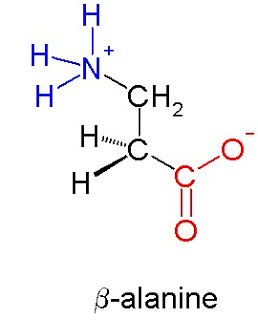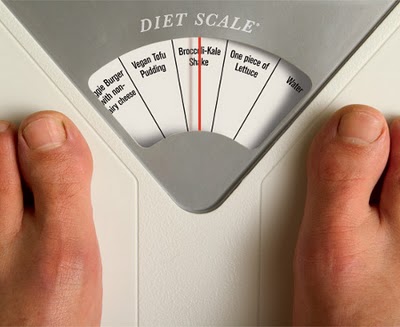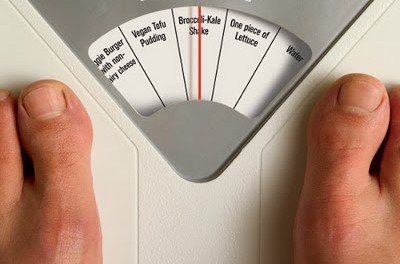The HMB-FA randomized trial: Not Sure If….
On first glance, I haven’t seen data this promising about a supplement since…ever. HMB (beta-hydroxy-beta-metahybutyrate) has been so _unpromising_ since its emergence back in the late 1990’s/early 2000’s, that I had basically stopped reading about it. And then Andrew Vigotsky mentioned me on Twitter and…well, consider me initially genuinely excited. Which is rare. Like, the next thing that might happen is a rain of frogs. But then I dug a little bit. Read More...
30 seconds of idiocy. The cure for cancer is delayed by decades.

There was a really interesting letter in the journal Nature on Thursday, “Australia’s grant system wastes time,” which was about how much time goes into preparing a grant for funding with Australia’s National Health and Medical Research Council (in Canada, this would be the Canadian Institutes for Health Research, and in the US, the National Institutes of Health). The authors of the letter did a survey of Australian researchers and found that it took, on average, 38 working days to prepare a new proposal. They extrapolated their survey data to estimate how much cumulative time was spent by Australian researchers who applied to the NHMRC preparing grants, and estimated thatn 550 working years of research time was spent on this endeavour. As with all federal funding agencies, only a small percentage of grant proposals get funding. In 2012, that was 20.5% in Australia. So, basically, about four centuries of cumulative research time was wasted, with no return on the time spent. The point of the letter was to encourage the NHMRC to simplify the application process to decrease the time wasted.
But there’s another insidious drain on research that goes unrecognized and I think really has manifested itself only in the past 10-ish years with the explosion of self-help publishing as well as the widespread adoption of social media that permits easy viral sharing of ideas; and that is the constant distraction of sensationalism. Read More...
Beta-alanine: The meta-analysis – 18 trials, still a marginal effect
 I’ve always thought a meta-analysis on beta-alanine was a good idea. So many of the trials have been underpowered, that it felt like weren’t getting anywhere fast. I wanted to be the one to do it, but life circumstances have kept me from focusing on much other than my main career. So it was a pleasant surprise to see that someone else had the same idea.
I’ve always thought a meta-analysis on beta-alanine was a good idea. So many of the trials have been underpowered, that it felt like weren’t getting anywhere fast. I wanted to be the one to do it, but life circumstances have kept me from focusing on much other than my main career. So it was a pleasant surprise to see that someone else had the same idea.
With just 11 weeks left before my exams though, I’m going to keep this blog entry brief. Read More...
Toe-ing the line: What I think about this whole shoe thing
 Oldest discovered leather shoe: 5500 years old
Oldest discovered leather shoe: 5500 years old
I’ve had a few emails asking me to review some of the literature on the new shoe trend. Every company is jumping on the bandwagon to create their version of the Vibram five TOE shoes (sorry, I’m going to be a hand and wrist sub-specialist. Toes are NOT fingers). It’s a little reminiscent of the “body-toning” shoe thing, without all of the wildly outrageous claims, and a trend that I think will live long enough to warrant weighing in on. Most studies to date have really focused on how the shoes alter foot and gait biomechanics. I would argue that most of the claims on the Vibram website are still largely unsubstantiated or just what I call “motherhood statements”, like: “Eating your greens is good for you,” and “Puting on your jacket when it’s cold outside is good for you.” (basically, statements that don’t really have any clout one way or another, but just make you feel better.) Read More...
The Information Diet
 The New Year season is full of resolutions to diet for weight loss. It’s also one of the most fruitful seasons for merchants who produce weight-loss products to add to their bottom line. They’re easy to find and getting more and more clever with each passing year. They’re on Google Ads, banner ads, Facebook, Twitter, youTube, and infiltrate virtually every other on-line media you use on a daily basis.
The New Year season is full of resolutions to diet for weight loss. It’s also one of the most fruitful seasons for merchants who produce weight-loss products to add to their bottom line. They’re easy to find and getting more and more clever with each passing year. They’re on Google Ads, banner ads, Facebook, Twitter, youTube, and infiltrate virtually every other on-line media you use on a daily basis.
This easily leads to information overload, as well as fear-based marketing: How do you choose from all of the products available? How do you sift through the inundating assault of those massively lengthy webpages that have PARAGRAPHS of text and testimonials? And worse yet, how do you know that one of those products isn’t better than the one you’re going to buy? Read More...
It was bound to happen
 This blog entry is courtesy of Fran Mayo who read an article in “Runner’s World” about some of the benefits of drinking pomegranate juice. It was fairly inevitable that I would get around to talking about pomegranate juice. It is, after all, all the rage right now and POM is currently in the media regarding some dubious health claims.
This blog entry is courtesy of Fran Mayo who read an article in “Runner’s World” about some of the benefits of drinking pomegranate juice. It was fairly inevitable that I would get around to talking about pomegranate juice. It is, after all, all the rage right now and POM is currently in the media regarding some dubious health claims.
There are lots of reasons to drink pomegranate juice. Personally, when it first came out as a commercial product, I thought it was a pure novelty. I mean, have you ever EATEN a pomegranate? It takes FOREVER. The whole idea of juicing enough fruit to make a whole bottle of pure pomegranate juice was just unfathomable. So from my perspective, one of the reasons to drink pomegranate juice is because you can. All that pomegranate-y taste without the painstaking work. Read More...
If you’re going to claim to improve hypertrophy, measure hypertrophy. (P.S. Your experiment has to be replicable)
 There’s been lots of attention to one of the latest studies out of McMaster University on low-load high volume resistance exercise and protein synthesis. I, for one, am not beneath jumping on bandwagons of any kind. However, let’s strike to the core of the matter, as opposed to dancing around all the peripheral (and also somewhat inconsequential) criticisms of the study.
There’s been lots of attention to one of the latest studies out of McMaster University on low-load high volume resistance exercise and protein synthesis. I, for one, am not beneath jumping on bandwagons of any kind. However, let’s strike to the core of the matter, as opposed to dancing around all the peripheral (and also somewhat inconsequential) criticisms of the study.
Burd NA, West DWD, Staples AW et al. Low-load high volume resistance exercise stimulates muscle protein synthesis more than high-load low volume resistance exercise in young men. Public Library of Science 5(8): e12033, 2010. Read More...
Belief shouldn’t be part of why something works (unless it’s curing cancer)
There are a lot of things you should believe in: the resilience of the human spirit, your own resolve to achieve what you want to get out of life, and perhaps that we will be able to sort ourselves out ultimately without destroying ourselves in the process as a species.
But supplements, diets and workout programs shouldn’t be things that require your belief. Read More...
Fear of loss: How the fitness claims get you
 All through my undergraduate “career”, I worked in labs. Just as there are gym rats, I was a lab rat. Great experience for me. Okay pay for a student. But when I finished my undergrad, I already knew I was going to start my Masters in the fall. And at the time, I also felt that I had never really earned an honest dollar. I had never set foot outside the Ivory Tower and so I wanted to experience what a “joe job” might be like. My first choice was to be a waiter–pretty social, they seem to have a lot of fun for the most part, and the pay was probably better than my lab stipends. But in Toronto, getting a job as a waiter is tough competition. In the end, I lucked out, but there was a period of a month or so where I hadn’t found that job.
All through my undergraduate “career”, I worked in labs. Just as there are gym rats, I was a lab rat. Great experience for me. Okay pay for a student. But when I finished my undergrad, I already knew I was going to start my Masters in the fall. And at the time, I also felt that I had never really earned an honest dollar. I had never set foot outside the Ivory Tower and so I wanted to experience what a “joe job” might be like. My first choice was to be a waiter–pretty social, they seem to have a lot of fun for the most part, and the pay was probably better than my lab stipends. But in Toronto, getting a job as a waiter is tough competition. In the end, I lucked out, but there was a period of a month or so where I hadn’t found that job.
So what’s a 23 year old, freshly graduated biology major to do? Hit the want ads, of course. What happened next is a story unto itself, but the crux of the story is that I ended up doing a short stint as a door-to-door salesman with a franchise of one of the largest direct sales companies in the world. Read More...

